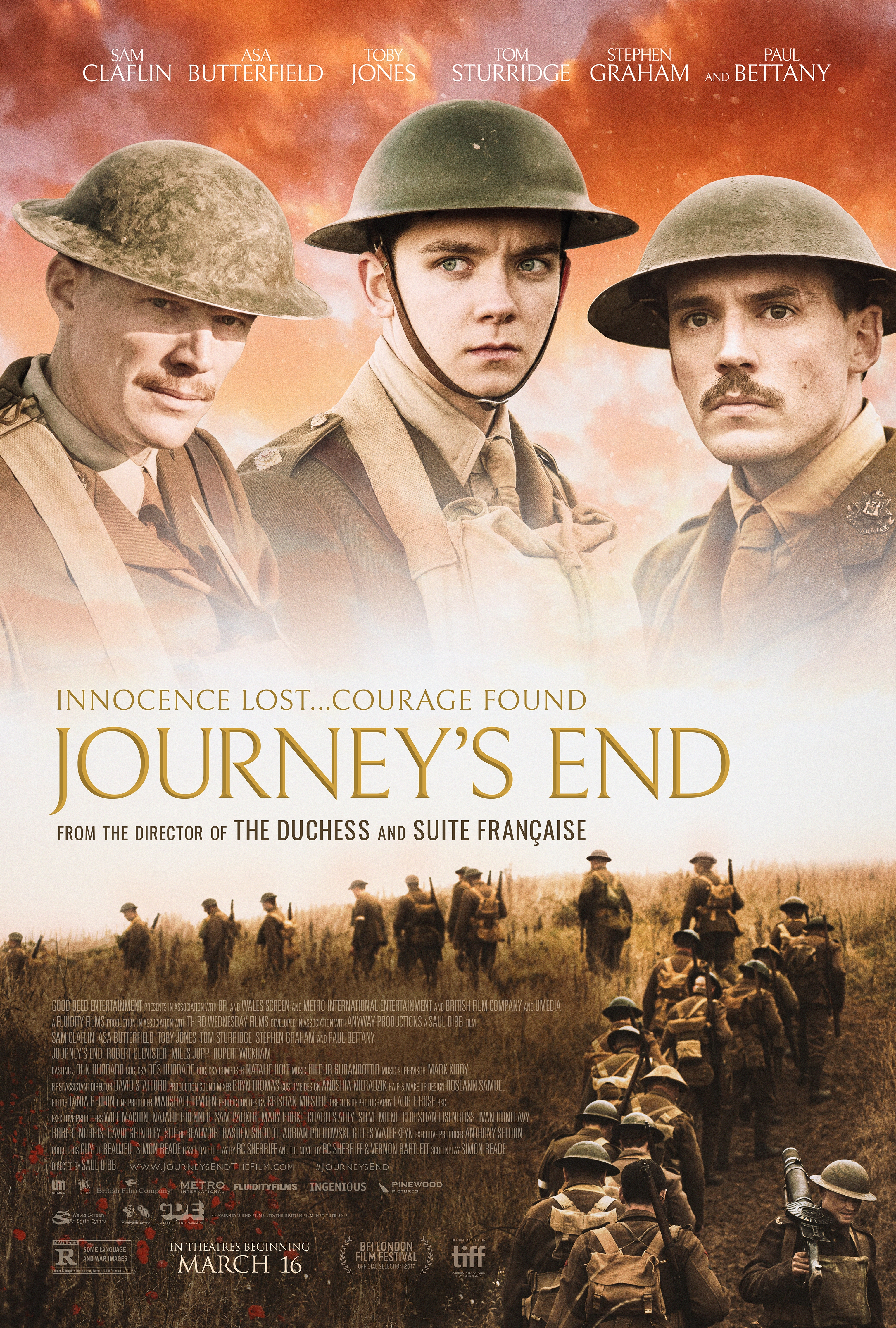100 years after the Spring Offensive, war is still hell and Journey’s End is still good

This year marks the centennial of the Spring Offensive, Germany’s last-ditch effort to break through British lines on the Western Front toward the end of World War I. That means it’s also the 90th anniversary of Journey’s End, R.C. Sherriff’s play about the Spring Offensive, as experienced by the British Army. This tremulous war-is-hell melodrama has served as a sort of boot camp for multiple generations of English actors: Laurence Olivier starred in the original stage production; a 1930 film adaptation featured Colin Clive (who would reunite with its director, James Whale, for Frankenstein the following year); 1976’s Aces High, which shifts the story to the British equivalent of the Air Force, includes Malcolm McDowell, Christopher Plummer, and Peter Firth among its cast; and there’s even a 1988 made-for-TV version, spotlighting the young Jeremy Northam and Timothy Spall. Is there any artistically compelling reason for the existence of the latest adaptation, which is clearly meant to take advantage of the centennial? Not really, but it’s a good play, once again providing juicy roles to fresh and established talent. That’ll suffice.
Set almost entirely in the trenches, Journey’s End begins with the arrival of fresh-faced 2nd Lt. Raleigh (Asa Butterfield, the kid from Hugo, now apparently old enough to be drafted), who’s specifically requested to join this particular company in order to be reunited with slightly older school chum Capt. Stanhope (Sam Claflin), who’s romantically involved with Raleigh’s sister. Stanhope, however, is on the verge of a complete nervous breakdown after several years spent dancing with death, and now feels doubly terrified that Raleigh may pass that damning information along in a letter home. Serving as mediator and general life coach is Lt. Osborne (Paul Bettany), a bottomless well of compassion who turns out, like Tom Hanks’ quite similar character in Saving Private Ryan, to have been a teacher in civilian life. The movie observes these men and their fellow soldiers (including sarcastic cook Toby Jones, genial grunt Stephen Graham, and severely shell-shocked Tom Sturridge) over the course of five days, as they await the rumored German offensive that all of them know they’re highly unlikely to survive.
There’s no mistaking this material’s theatrical origin, though director Saul Dibb (The Duchess) gamely attempts to liven things up with a couple of overly chaotic battle sequences. Most of the drama unfolds in the officers’ quarters beneath the trenches, with actors making entrances and exits on cue and engaging in conversations that tend to be sustained longer than is customary on screen. Still, it remains bracing to see a war movie openly acknowledge the intense, often ungovernable fear that infects even the bravest of soldiers. Stanhope is the vehicle role (previously played by Olivier, Clive, McDowell, etc.), and Claflin, who’s often come across as a bit callow in the past, hauntingly conveys the exhaustion of a never-ending struggle to overcome one’s pervasive feeling of dread. For everyone here, the end of the journey could involve a grave; Sherriff’s play will surely avoid that fate, being resuscitated again and again in the future, but at least it’s sturdy and incisive enough to still feel relevant almost a century after it was written. Until next time.